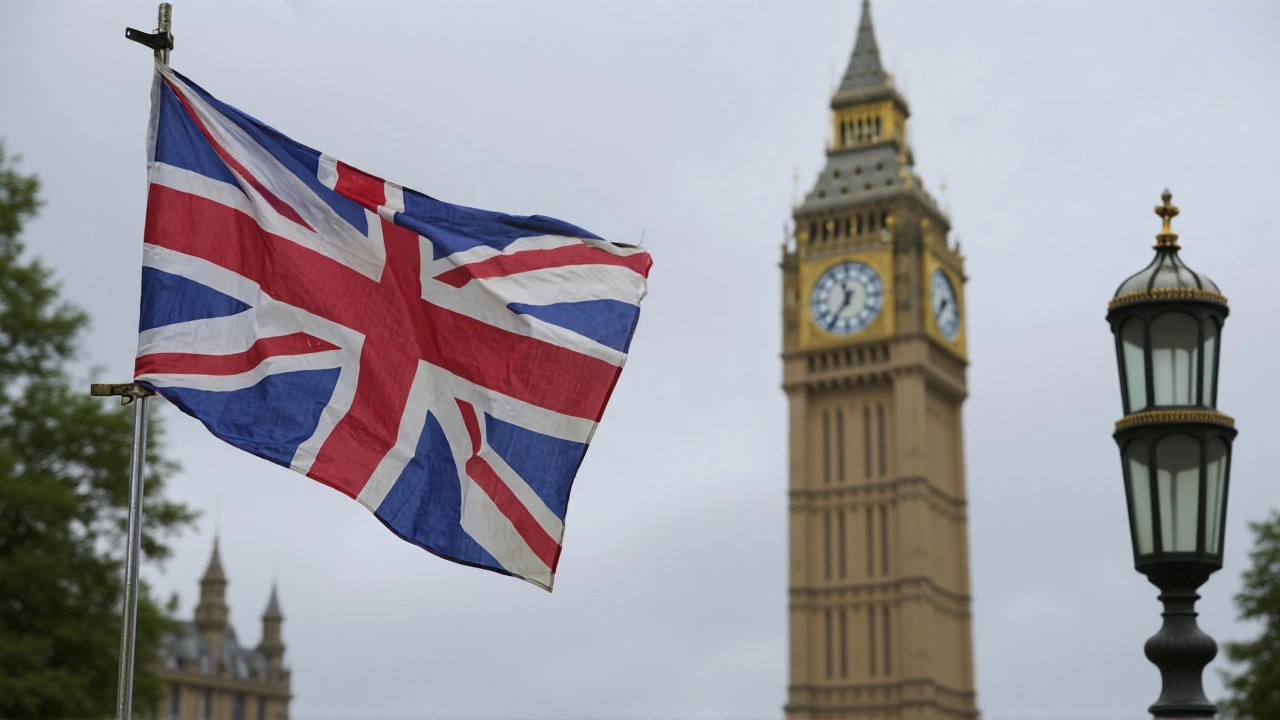Starting 8 January 2025, every European visitor to the UK — from French retirees to German students — now needs a digital pass just to board a plane. The UK Home Office has fully rolled out its Electronic Travel Authorisation (ETA) for travelers from all 27 EU nations, along with the U.S., Canada, Australia, and 81 other countries. Over 13.3 million ETAs have been issued since the pilot launched in October 2023, but the real test begins on 25 February 2026, when airlines and ferry operators will refuse boarding to anyone without one. No visa. No fee waiver. Just a £16 digital stamp — and if you don’t have it, you won’t get on the plane.
What the ETA Actually Does (And Doesn’t Do)
The UK Home Office is quick to clarify: an ETA isn’t a visa. It’s not a tax. It doesn’t guarantee entry. It’s a pre-screening tool — a digital green light that says you’re allowed to *travel* to the UK, not necessarily to stay. Think of it like a boarding pass for immigration. You still get questioned at the border. You still need to prove you’re not overstaying. But without the ETA, you won’t even make it to the queue.
The system, accessible via the official GOV.UK website or the UK ETA app on Apple and Google stores, takes minutes for most applicants. Children and babies? They need one too. Every single one. The approval rate is high — 98% get instant clearance — but the Home Office warns: allow three working days if your case needs manual review. That’s the catch. You can’t wait until the last minute.
Who’s Exempt? And Who’s in Danger of Getting Stranded
Here’s the twist: British and Irish citizens don’t need an ETA. But dual citizens? That’s where things get messy. If you hold both British and French nationality — and you try to fly into Heathrow with only your French passport — you’re in trouble. Starting 25 February 2026, you’ll be pulled aside. You’ll be denied the fast-track passport control lane. You’ll wait while officials verify your British status. It’s not a fine. It’s not a ban. But it’s a delay. And if you can’t prove your British citizenship with a valid passport or Certificate of Entitlement? You might not get in at all.
Legal residents of Ireland — say, a U.S. citizen living in Dublin — are exempt if they’re traveling within the Common Travel Area. But if they fly from Paris to Manchester? They need the ETA. And those transiting airside at Heathrow without clearing UK immigration? Still exempt — for now. But the Home Office says that loophole is under review. Don’t count on it.

Why This Isn’t Just About Security
The Home Office says the ETA is about modernization. A contactless border. Real-time data. Pre-screening before arrival. But behind the tech-speak is a quiet shift in how the UK treats visitors. This isn’t just about stopping criminals. It’s about controlling flows. The UK has spent years tightening immigration policy — from the hostile environment of the 2010s to the post-Brexit recalibration. The ETA is the next logical step: digitizing access, not just at the border, but at the airport check-in desk.
Compare it to the U.S. ESTA or Canada’s eTA. The UK’s version is similar — but more tightly enforced. And unlike those systems, the UK has made it clear: no exceptions after February 2026. Airlines face fines if they board non-compliant travelers. That means your travel agent, your online booking platform, your airline’s app — they’ll all be checking. One missing ETA, and your flight gets canceled. No warnings. No grace period.
The Ripple Effect: Tourism, Business, and Families
Visit Scotland and Tourism Ireland have quietly warned operators: expect a drop in short-stay visitors. A 2024 survey by the British Travel Association found 28% of European travelers hadn’t heard of the ETA. Many assumed it was a visa. Others thought it was optional. Now, with the deadline looming, confusion is turning to anxiety. One family in Manchester told us their Spanish in-laws canceled their Christmas visit because they didn’t want to risk being turned away. A London-based tech firm reported two German engineers had to delay a critical project because their ETA applications were stuck in manual review.
And then there’s the cost. £16 isn’t much — until you multiply it by 15 million travelers a year. That’s over £240 million in revenue for the Home Office. Critics call it a stealth tax. The government calls it a cost-recovery measure. Either way, it’s here to stay.

What Happens After February 2026?
By April 2025, the ETA was fully rolled out for all eligible nationalities. But enforcement is the real milestone. On 25 February 2026, the UK will become the first major European destination to make digital pre-clearance mandatory for *all* visa-exempt visitors — no exceptions. That’s bigger than Schengen. Bigger than the U.S. ESTA. It’s a new normal.
What’s next? The Home Office has hinted at integrating ETA data with biometric systems and linking it to future visa reforms. Could this lead to mandatory facial recognition at UK airports? Possibly. Could it expand to include residency checks for long-term visitors? Likely. The infrastructure is built. Now it’s just a matter of scaling.
Frequently Asked Questions
Do I need an ETA if I’m a British citizen living abroad?
No — if you hold British citizenship, you don’t need an ETA. But you must present a valid British passport or Certificate of Entitlement when arriving in the UK. If you try to use a foreign passport, you’ll be delayed at passport control while officials verify your nationality. Starting 25 February 2026, this could mean missing a connecting flight or facing hours of questioning.
Can I apply for an ETA on the day of my flight?
Technically yes — but it’s risky. While 98% of applications are approved instantly, some require manual review, which can take up to three working days. If your application is flagged — say, because of a past visa refusal or a name match in a database — you could be stranded at the airport. The Home Office strongly recommends applying at least a week in advance.
Does the ETA apply to children and infants?
Yes. Every traveler, regardless of age, needs their own ETA — even newborns. Parents must apply separately for each child. The process is the same: name, passport details, a photo, and a £16 fee. There are no exemptions for babies or toddlers. Failure to include a child’s ETA will result in denied boarding.
What if I’m just transiting through the UK?
If you stay airside — never clearing UK passport control — you don’t need an ETA. But if you’re changing terminals, collecting luggage, or passing through immigration (even for a 20-minute layover), you do. The Home Office is reviewing this exemption, and future changes could require ETAs even for airside transits. Don’t assume you’re safe.
How long is an ETA valid, and can I renew it?
An ETA is valid for two years or until your passport expires — whichever comes first. You can’t renew it; you must reapply. If your passport expires in 18 months, your ETA expires then too. The system auto-notifies you 90 days before expiration, but you’re responsible for applying again. Many travelers miss this and show up at the airport only to find their ETA is no longer valid.
Why is the UK doing this now?
The UK aims to modernize its border system, reduce manual checks, and improve security by screening travelers before they arrive. Post-Brexit, the UK lost access to EU databases like SIS II, so it’s building its own. The ETA is the first step toward a fully digital border. It also generates revenue — over £240 million annually — and helps track overstayers by linking travel data to immigration records.






